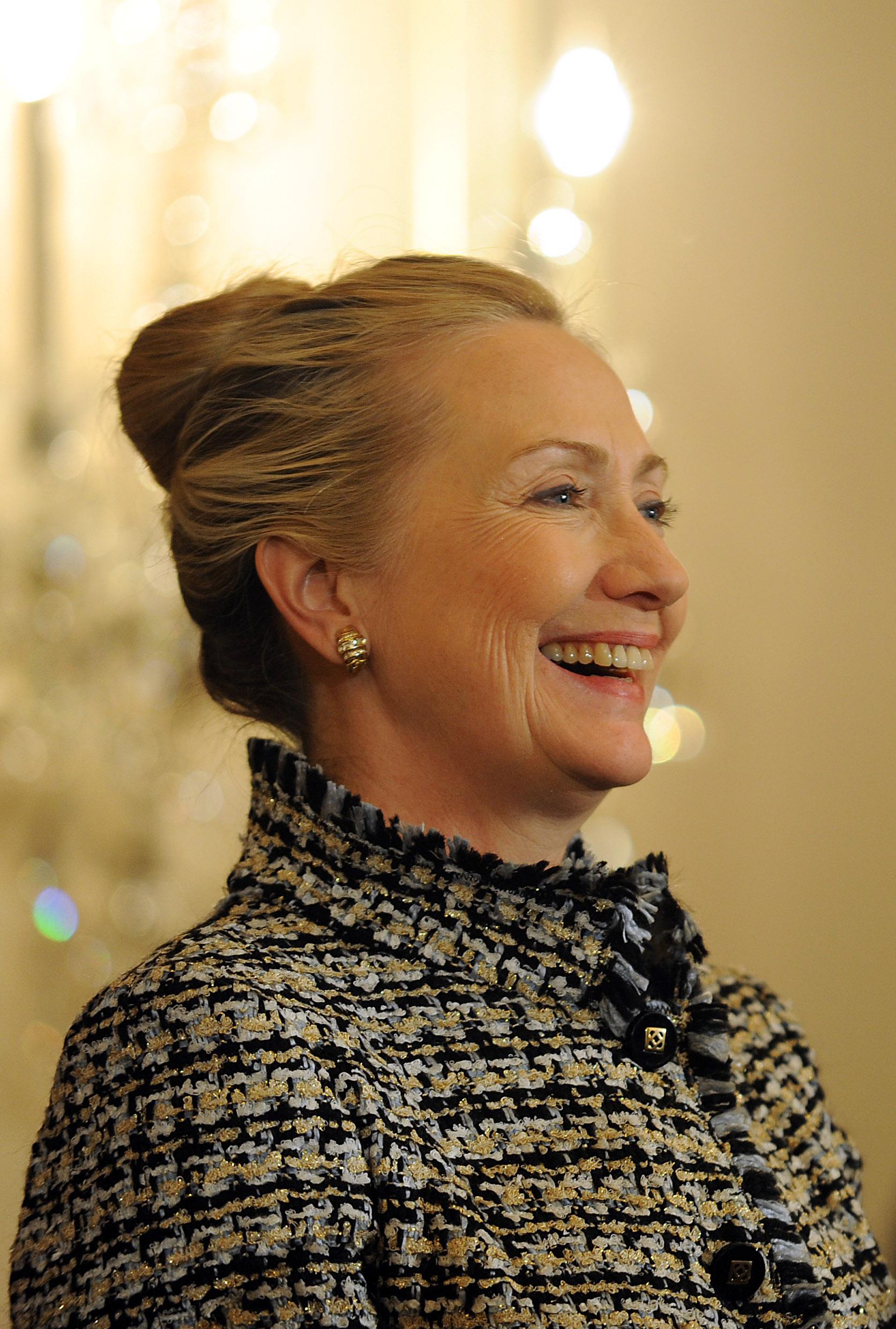Matt Yglesias at Vox reports on an interesting development out of an all-female panel of Democratic luminaries on Thursday: Hillary Clinton kept using feminism to frame her arguments, particularly when talking about the concerns of working class women.
“Women hold two-thirds of all minimum wage jobs,” Clinton observed, and “nearly three-quarters of all jobs that are reliant on tips” and thus eligible for sub-minimum wages.
Clinton discussed the plight of a working-class mother with a service-sector job that provides low pay and little flexibility. “We talk about a glass ceiling,” she said, “but these women don’t even have a secure floor under them.”
As Yglesias notes, the gender gap that gives most female voters to Democrats and most male voters to Republicans is commonly understood as one created by Democratic stances on a host of “women’s issues,” such as their support for equal pay, reproductive rights, and the traditionally strong role they’ve played in pushing anti-violence legislation like the Violence Against Women Act. But in reality, it’s that women have always been more economically liberal and have stayed that way even as men moved to the right. Which isn’t to say that issues traditionally regarded as “feminist” don’t have political value to Democrats, but that value is more in getting out the vote than it is in persuading anyone to switch sides. Once inside the booth, women’s greater support for a social safety net and government regulation of business is what gets them to pull the lever for the Democrats.
But, as Yglesias writes, this distinction between “social” issues and “economic” issues is a false one, always has been. Reproductive rights, for instance, are inseparable from economic considerations. Same goes, perhaps obviously, for pay equality. Clinton’s remarks suggest that the Democrats are moving towards a more holistic understanding of feminism, seeing that it is more than just a handful of “women’s issues” (with a side dose of corporate leaders extolling us to lean in) and instead using a feminist “take” on nearly all issues, like workers’ rights and the minimum wage.
To be clear, Clinton is not re-inventing the definition of feminism. Feminist academics have been on this for a long time, wedding feminism to race and class. But Clinton’s remarks show how Democrats are beginning to move that sort of thinking out of women’s studies seminars and turning it into a potent political strategy, reinforcing the notion that the traditional liberal agenda is particularly important to women.
The battle over the contraception mandate is a perfect example of how effective this can be. The HHS requires that a whole host of medications and services be covered without a co-pay by your insurance plan, but the Obama administration, along with a host of women’s organizations, did highlight the fact that contraception is included in that list specifically to show female voters how health care reform would help them meet educational, career, and relationship goals. It’s doubtful that it was a deliberate attempt to bait conservatives, but that is nonetheless what happened. The two years and counting that conservatives have been throwing a hissy fit over “free” birth control has been a headache, for sure, but it’s also helped show female voters how reproductive rights and economic policies are closely tied together. And how we need economic policies like universal health care to help level the playing field between men and women.
Putting feminism, even if you don’t necessarily call it “feminism,” front and center on issues like workers’ rights and the minimum wage is similarly a smart move for Democrats. One of the popular talking points on the right is that Democrats only speak to women “below the waist.” Democrats can shut that entire narrative down. Appealing broadly to female voters helped push Obama over the line in 2012, and there’s no reason to think that Clinton can’t take it to the next level in 2016.
